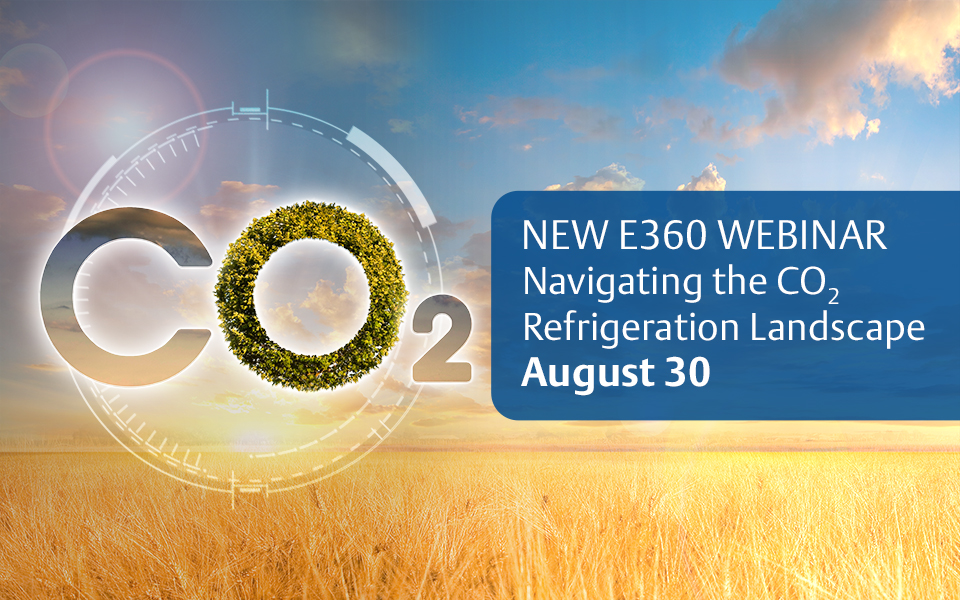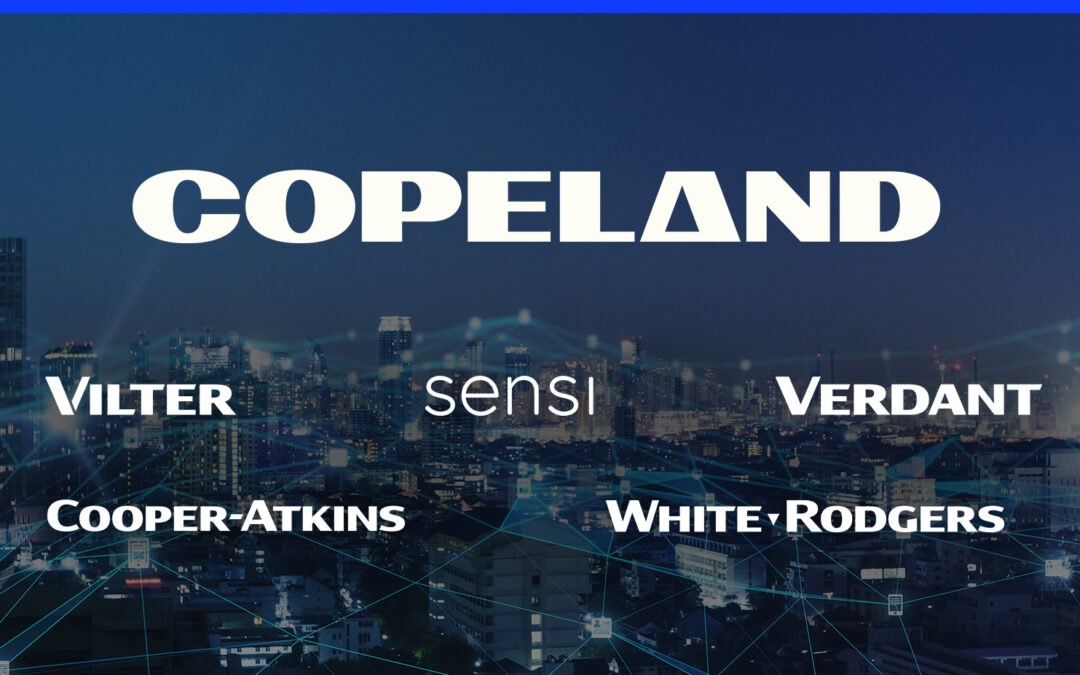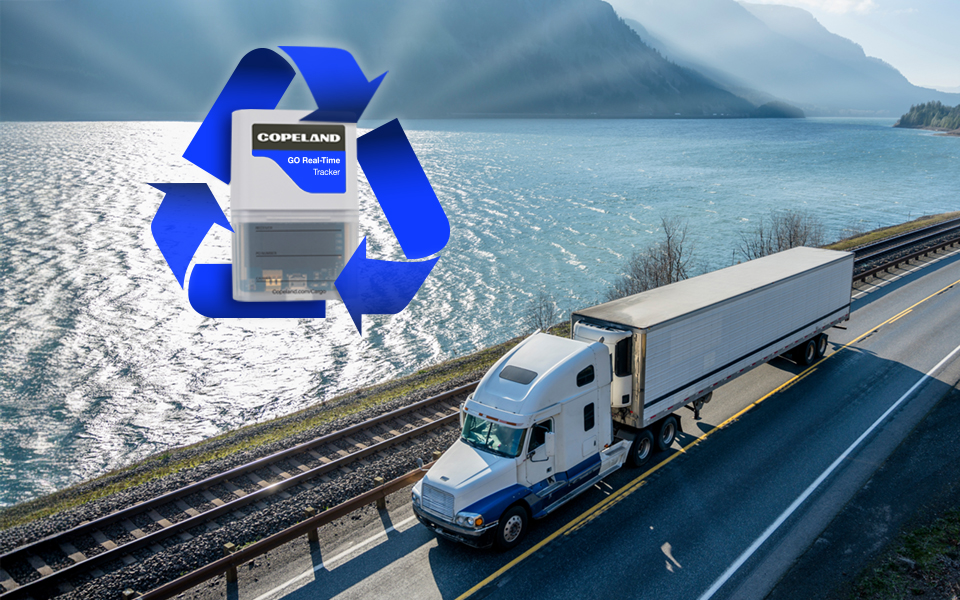*On June 1, 2023 Emerson’s Climate Technologies business became a new standalone company – Copeland. Though our name has changed, we are building on more than a century of HVACR innovation and industry leadership, and Copeland continues to offer the same products, industry stewardship, and learning opportunities you’ve grown to trust. Information found on this webpage posted before June 1, 2023 may contain our old name or branding, but you can be at ease knowing it was created with the knowledge and expertise of Copeland.
Among the emerging class of lower-global warming potential (GWP) refrigerants, CO2 (or R-744) is one of the few alternatives that already has a global track record of success in commercial refrigeration. For the next installment in our Journey to Lower-GWP Refrigerants E360 Webinar series, Brent Cheshire, Copeland’s manager of end-user services and I will explore how CO2 refrigeration strategies are being leveraged to help U.S. food retailers achieve regulatory compliance and meet sustainability objectives. This free webinar will take place on Tuesday, Aug. 30 at 2 p.m. EDT/11 a.m. PDT.

Although CO2 has been used effectively in refrigeration applications for decades, continuing advancements in CO2 transcritical booster (TCB) technologies have driven a significant increase in global adoption in recent years. Not only are modern CO2 systems simpler to own, operate and manage, they also can be configured to operate efficiently in a variety of climate zones. As more U.S. retailers embark on their lower-GWP refrigerant transitions, it’s no surprise that the adoption of CO2 TCB systems is becoming more widespread throughout North America.
In our upcoming webinar, Navigating the CO2 Refrigeration Landscape, Brent and I will review the drivers behind the growing trend of CO2 adoption and examine the technological advancements enabling the next generation of CO2 refrigeration applications.
Compared to traditional hydrofluorocarbon (HFC) refrigerants, CO2 has unique performance characteristics and caveats that impact system design and operation. In the U.S., many original equipment manufacturers (OEMs), end users, contractors and design consultants are still unfamiliar with these differences; as a result, misperceptions persist. This webinar will provide an overview of R-744’s properties and present real-world examples of successful CO2 TCB installations in U.S. supermarkets.
We will also explore how CO2 TCB systems can be designed to optimize energy efficiency and maximize performance in a variety of climate zones, regional conditions and installation considerations. Many of these insights come directly from the preliminary results of a CO2 climate study that Copeland commissioned with our expert CO2 research partners. The findings demonstrate how various CO2 TCB design optimization strategies perform throughout different climate zones found in the continental U.S.
Finally, we will discuss Copeland’s ongoing commitment to furthering CO2 refrigeration technologies and simplifying their applications in U.S. markets. This includes the development of seamlessly integrated system components — such as compression technology, advanced CO2 system controls, variable frequency drives (VFDs), leak detection sensors and high-pressure valves — and the continued investments in CO2 refrigeration research labs and technologies.
Be sure to register now and make plans to join me and Brent on Tuesday, Aug. 30 at 2 p.m. EDT/11 a.m. PDT for an informative discussion on CO2 refrigeration. Attendees will learn:
- Sustainability and regulatory drivers of CO2 adoption
- Distinct characteristics and caveats of R-744
- Examples of CO2 TCB system case studies and design optimizations for various climates
- Copeland’s fully integrated approach to CO2 compression, controls and system components
- Available resources for supporting your CO2 journey

Copeland Aligns its Family of Brands for the Future
As a critical milestone in our journey as a standalone company, Copeland is excited to unveil a...

Recycling Program Contributes to Supply Chain Sustainability
Copeland Is Your Partner for a Greener Supply Chain Throughout the perishable food supply chain,...
Industrial Heat Pumps Deliver Sustainability, Lifecycle Benefits in Food and Beverage Industry
The food and beverage industry faces increasing pressure to reduce scope 1, 2 and 3 emissions. In...
